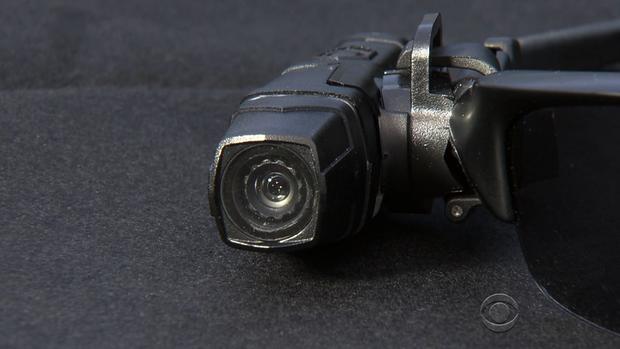Could wearing a camera actually make an officer's life easier?
LAUREL, Maryland - It was 2 a.m. when police in Laurel, Maryland, pulled over a woman driving on the wrong side of the road.
One officer was wearing a small camera attached to his glasses. The camera captured exactly what he saw as the woman restarted her engine, slammed the car into drive and sped away.
As the camera continued to roll, police gave chase. The woman crashed her car and then tried to flee on foot. Pursuing officers hit her with a TASER and arrested her for drunk driving.
There have been growing calls for officers to wear cameras in the wake of the shooting of unarmed teenager Michael Brown by a police officer in Ferguson, Missouri. Places like Laurel have already equipped their officers with the devices.
Laurel Deputy Police Chief James Brooks told CBS News all of his street officers now wear cameras. To Brooks, it's all about accountability.
In the case of the drunk driving incident, the officer would only have had his account without the camera.
"So now you are going down the road, you see a car maybe weaving back and forth, you can turn your camera on and start to capture that evidence that you may want to present for a DUI case in court," Brooks said.
In Daytona Beach, Florida, police wearing cameras caught a man beating his girlfriend. Faced with clear video evidence, Jeremy Archer pleaded guilty to battery and drug possession.
Police say the recordings have also helped defuse potential confrontations. In the two years cameras have been used in Rialto, California, the use of force by police is down 48 percent and complaints against officers are down 88 percent.
In Laurel, Maryland, where cameras have been on the street for eighteen months, complaints against police have also fallen. Officers like Sean Fabel are required to record every encounter with the public.
"Anytime I make contact with a citizen I turn the camera on. Any sort of traffic stop, I turn the camera on," Fabel said. "If someone walks up to me and asks me for directions, I turn the camera on."
Officers want the public to know they're wearing the camera system, Fabel said. "We want them to know that it is being recorded. Transparency is what we are look for there."
Incidents like the drunk driving chase, Brooks said, prove the approach is working.
